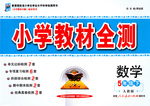题目内容
Starting from April, 2010, you won’t be hearing the word “NBA” on sports programs on CCTV. Instead, sport host will give the full Chinese name when they refer to the NBA – National Basketball Association. You also won’t hear any other English abbreviations (缩略词) on CCTV’s Chinese programs, such as GDP (gross domestic product), or WTO (World Trade Organization). You will hear their Chinese translations.
CCTV received a notice from the State Administration of Radio, Film and Television telling it to avoid using English-language abbreviations in their reports to protect the “purity” of the Chinese language. A few other TV stations also received the notice.
Fu Zhenguo, an editor of People’s Daily, is one of the people who suggested the change. “Firstly, using English in a Chinese-speaking environment is against Chinese law,” he said. “Then, using English on Chinese TV programs is unfair to people who don’t understand English. What’s worse, it will have a bad language influence on kids and teenagers.”
A lot of netizens have criticized the move, saying that it will cause problems for them.
“I understand what CD, VCD and DVD mean when I hear them. But I won’t know what the TV programs are talking about if I hear those products’ full Chinese names,” a netizen wrote in a BBS post. Following the same post, another netizen wrote jokingly: “I’m not listening to my MP3 now. I’m listening to my Moving Picture Experts Group-1 Audio Layer 3 (动态影像专家压缩标准音频第三层面).”
1.What does the underlined word “purity” in the second paragraph mean?
A. 纯正 B. 高贵 C. 时髦 D. 潮流
2.How many reasons did Fu Zhenguo list to show his support for the change?
A. 1 B. 2 C. 3 D. 4
3.Some netizens went against the change because_______________.
A. the application of abbreviations will make Chinese popular.
B. the application of abbreviations will attract the youth.
C. the application of abbreviations will not simplify the understanding.
D. the application of abbreviations will not bring Chinese to an end.
4.What can be the full name of CCTV mentioned in the text?
A. Close Closet Top Video B. China Central Television
C. China Common Time Voice D. Closed-Circuit Television
1.A
2.C
3.C
4.B
【解析】略

 小学教材全测系列答案
小学教材全测系列答案For several years, Americans have enjoyed teleshopping watching TV and buying things by phone. (66) In a number of Europe countries, people can turn on their TVs and shop for clothes, jewelry, food, toys, and many other things.
(67) For example, the biggest Swedish company sells different kinds of things on TV in 15 Europe countries, and in one year it made $100 million. In France there are two teleshopping channels, and the French spend about $20 million a year to buy things through those channels.
In Germany, until last year teleshopping was only possible on one channel for 1 hour every day. Then the government allowed more teleshopping. Other channels can open for telebusiness, including the largest American teleshopping company and a 24-hour teleshopping company. (68)
Some people like teleshopping because it allows them to do their shopping without leaving their homes. With all the problems of traffic in the cities, this is an important reason, but at the same time, other Europeans do not like this new way of shopping. (69) Many Europeans usually worry about the quality of the things for sale on TV. Good quality is important to them, and they believe they cannot be sure about the quality of the things on TV.
(70) They will have to be more careful about the quality of the things they sell. They will also have to work harder to sell things that the buyers cannot touch or see in person.
| A.Now teleshopping is starting in European |
| B.They call teleshopping “ Junk on the air” |
| C.Teleshopping is becoming popular in Sweden |
| D.German businesses are hoping this new teleshopping will help them sell more things |
F. Teleshopping is popular among people.
66._______ 67._________ 68._________ 69.___________ 70.___________
第二节(共5小题;每小题2分,满分10分)
根据短文内容,从短文后的选项中选出能填入空白处的最佳选项。选项中有两项为多余选项。
I was in Tokyo last spring, walking in the street and talking with my dear friend Kirsten. 71 It turned out to be a group of four very hip Japanese college students playing their music instruments for anyone who would listen.
72 In the middle of the second song, an old homeless man broke through the crowd and started shouting at the band. The musicians did their best to ignore him but the man would not go away. It seemed he was angry about the loud noise.
I remember there were probably two dozen people watching this. 73 I was also helpless because first, I couldn’t speak much Japanese, and second, the homeless man was starting to get more and more violent. At one point, he picked up a stick and started banging on the drum set.
This was more than the young drummer could take. He stopped playing, stood up and pushed the old man to the ground.
74 He knelt down next to the old man, took hold of his hands and asked him if he was alright. I couldn’t understand what was being said, but I will never forget the way this young man helped bring the fallen man to his feet. And I will never forget the way he carefully placed his arm around the old man’s shoulders and quietly walked him away.
75 Maybe this old man was a prince in disguise. And maybe he was waiting to see someone act, just once, with beauty and courage.
|
A.I couldn’t help but wonder. |
|
B.All of them went away at once. |
|
C.Suddenly, we heard the sound of a jazz band. |
|
D.Everybody became angry with the old man. |
E.But no one knew what they could or should do.
F.However, not everyone was enjoying the music.
G.At that time, a young Japanese man went through the crowd quietly.